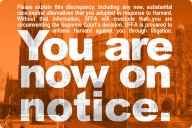You have /5 articles left.
Sign up for a free account or log in.

Istockphoto.com/stockworldr
“So, what are your plans after you finish the Ph.D.?”
The dreaded question. The one you know you should have an answer for -- and not some vague hand-wavy platitude. This question causes so much anxiety because it ultimately leads us to another one: “Who am I?” This existential query is so daunting and intimidating that it’s a struggle to even know where to start.
First, we need to consider the fallacy of relying solely on internal reflection for an answer to that enormous question and, instead, realize that change usually happens the other way around: doing comes first, knowing, second. It is nearly impossible to think out how a career transition is going to go and, therefore, equally hard to execute without evidence and experience.
Second, we need to acknowledge the delusion of the premise that we can identify one perfect path for our life. “Who am I?” presumes that there is only one answer. In reality, the factors and priorities that inform your decision making will change often, as the situations in your life change. The theory of exploring our “many possible selves” is examined fully in Herminia Ibarra’s writings in Working Identity, where she argues that career transitions are, in fact, a challenge to our core identity.
As a trained scientist who spends her days advising and guiding current Ph.D. students and postdocs in the STEM fields as they navigate their careers, I often find myself using scientific situations to connect my advisees to the concept of career exploration. I spend time with them, for instance, examining how their experience working with various personalities in the lab can inform which working culture fits them best. Or reminding them that being in charge of an undergraduate intern during the summer can equal management experience. Or teasing out that a postdoc who’s known as the go-to editor for all of her group’s papers and grant applications can indicate a well-honed skill in written scientific communication.
One large metaphor -- how career exploration is in fact a grand experiment -- is the one I utilize most when grad students and postdocs are unsure of how to start identifying what they can do next. If you are a Ph.D. about to go on the job market, this iterative framework can provide you guidance and conceptualize the steps to take as you explore career options.
Step 1: Gather Information. What do you do when you’re gearing up for a new research project or experiment? You gather information in preparation. You might talk to a senior graduate student or postdoc who has prior experience with this type of research. You’ll research methods by looking at papers or walking through the protocol. Similar tools can be used to research career options:
- Self-assessments. An excellent starting point is to first achieve clarity on your own skills, interests and values so that you can evaluate career options in light of those determinations. I recommend multiple online resources for this step of self-assessment: myIDP from Science Careers is best for those in the life and physical sciences, whereas ImaginePhD is more suited to those in the social sciences and humanities.
- Career stories. If you’re looking for a repository of career stories, look no further than VersatilePhD. Their PhD Career Finder is a rich resource of real-life accounts of Ph.D.s who have transitioned to a wide variety of career paths. They include a first-person, in-depth description of how each individual handled their career transition and job search. Please note that your institution does need to be a subscriber to access this platform.
- Informational interviews. Probably the best source of information about a specific career is, of course, the people who are currently in it. Begin by reaching out to your immediate network of peers, colleagues, friends and family, and then move further afield. Tap into your alumni community or use LinkedIn to identify people in interesting positions. Informational interviewing is an incredibly powerful tool to not only evaluate careers and company culture but also to build professional connections. Unsure of how to do this while many are working from home? This article outlines an excellent strategy.
- Campus activities. Many colleges and universities -- when not under social distancing and work-from-home guidelines -- offer a multitude of in-person events and activities for graduate students and postdocs. Employer information sessions, roundtable career conversations with alumni, large-scale career fairs, external speaker series -- such events are opportunities for you to gain further information. Even if you’re passively sitting in the audience, you can still benefit from hearing advice, perspective and expertise. Check in with your career office during this time, as some events may have since moved online.
In this initial step, all of these activities will lead to more and more information (or data) that you’ll need to absorb. You should then use this knowledge to evaluate if a certain career path still sounds interesting. And it’s totally fine if you come across information that makes you say “no, thanks” to a particular career. At this stage, it is just as important to cross things off the list of possibilities! Make it a goal to whittle your list down to two or three career paths as we move into Step 2.
Step 2: Do the experiment. Just like a scientific experiment where you don’t know the results until you actually do it, you can’t know how you’re going to do in a career until you test it out. While you probably won’t be able to truly immerse yourself in a job prior to a full transition, your goal should be to get a taste of what it’s like to have X job or be in Y role.
You may be asking yourself how you can do this while conducting research, teaching, publishing -- doing all the things you do during a Ph.D. or postdoc. The method I used extensively during my own Ph.D. and postdoc, and one I continue to suggest, is to engage in part-time, on- and off-campus activities. Getting involved in campus committees or other academic service projects can give you the opportunity to try out certain activities while also building skills.
Are you interested in careers in science communication? Consider joining a science outreach program on your campus. Are you contemplating a path in nonprofits, where having experience running events may be crucial? Join your graduate student committee and organize an event with external speakers. Volunteering for local initiatives, being a guest blog writer for a nonprofit or doing a side project for a company are all equally promising ideas.
In addition, some institutions are now offering part-time internships that are designed intentionally to fit the life of a graduate student or postdoc. Many options are available to be done in a remote fashion and are structured to provide you with deliverables. Of course, if you have the option and ability to do a full-time internship, that possibility should be on the table, as well.
The main takeaway is that we shouldn’t just jump into a new career path without trying it out first. This is experiential education at its core.
Step 3: Assess, optimize and move on. After you’ve done the experiment, intentionally take time to assess how that experience went. Was it what you expected? Did you enjoy it? Were there aspects that perhaps changed your perspective about that career path?
It’s also important to evaluate if this experience gave you enough information to move forward -- to either continue to prepare for this career or decide it isn’t the right fit. If it didn’t provide enough information to make a clean decision, then you may need to rethink other experiences that would help answer any outlying concerns or questions. You could reconnect with relevant contacts you built during Step 1 who can serve as a sounding board and mentor for you as you navigate this process. Career advisers at your institution are also an excellent resource.
If this experiment, in fact, confirmed your theory that such a career fits you best, then you can move forward confidently in further preparation for your career transition.
Career exploration can be iterative, in that you may need to go back to Step 1 and continue investigating other options. But don’t get discouraged! Figuring out your next step is a challenging endeavor that deserves intentionality, groundwork and serious consideration. As they say, anything worthwhile takes time. This structured way of researching and assessing options can assist you as you move toward greater congruence between who you are and what you choose to do.








